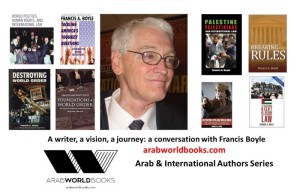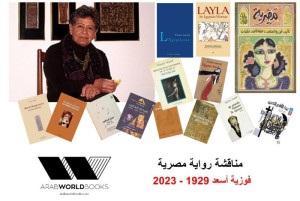Mohammad Rabie, Kawkab 'Anbar, Cairo: Kotob Khan, 2010
'The decision to write a novel is made after a few pages, perhaps before you start writing, but I think the time frame remains the principal factor. That is why this book is a novel, in the end, because that is the way the idea developed and the way I imagined it would spread over time. Sometimes I imagine a new form even more economical than the short story, through which to condense events that are spread out over long periods of time to the greatest extent possible. But all my attempts at achieving this form have been miserable'
Review and interview by Youssef Rakha
BOOKSHOP: When a book signing ends up feeling like an engineers' reunion, it makes you think not of structure but of paranoia. There is the architectural analogy, that is true (and in Arabic an architect is literally an --architectural engineerÞ). But by now it is something of a cliché: the stringing together of narrative is, anyway, nothing like the construction of buildings; character, dialogue and pacing, the poetry of scene and sentence, have little to do with design. Of course, engineers deal with electric circuits as well as building plans, pistons and pulleys, drills, computers, equations, frames and frameworks, all kinds of objects that can have metaphorical relevance to the writing process. But metaphors only go so far most of the time, and for many of us writing is a profession in its own right -- in danger of being taken over! A month or so ago, a shortish novel longish by recent young-writer standards, Kawkab 'Anbar (the name means --Amber PlanetÞ), drew into the Kotob Khan Bookshop, where it emerged during a workshop with Yasser Abdel-Latif, what seemed like a range of people interested in new writing. The main speaker was a critic but apart from one dentist (the promising young poet Ahmad Nada), almost everyone turned out to be an engineer -- civil, mechanical, hydraulic, electrical. For a moment it seemed as though a mafia of those lever-wielding un-poets were ambushing the literary sphere, infiltrating writerly circles all across the city, befriending with a view to replacing true writers and eventually, well -- eliminating them. I would not stand for it! Thus I directed my malicious glances to the person at the centre of all this, the author of the book, Mohammad Rabie: born in 1978, a practising, yes -- practising civil engineer since his graduation from university in 2001, to his friends he is actually known as Rabie, since there are too many Mohammads in this part of the world. For a moment Rabie did look like the don of some magic realist mafia. The beauty of paranoia is that it impounds reason. It was only a moment, but for its duration I was convinced there really was a mafia who gathered at construction sites to draw up plans of attack for literary world domination. I seemed to forget that Rabie was among the most personable people of his generation I had met, a writer with talent regardless of what else he does, totally innocuous.
I spend a lot of time in bookshops. I read the blurbs on the back covers, sometimes the introductions as well. I think hard before I buy. I hate crowded bookshops where I feel no sense of privacy. That's why Kotob Khan is the perfect place for me. I also hate bookshops where attendants materialise the moment you walk in asking you what you want. It's insolent. But as I say Kotob Khan was a perfect place to do this. Yasser Abdel-Latif did not interfere very much at all. Since the beginning he was careful about giving the participants just as much autonomy as they needed. Still, I think he managed to slip in ideas and sentences. There were parts he was largely dissatisfied with and I worked on those. What he insisted on was that there should be a dramatic line linking the events in the book, which is what I set out to do from the beginning. All of which was of course very helpful to me; and I think the fact that the participants thought alike and had a similar orientation was the main factor behind the success of the workshop. I think that any text with dramatic lines is a novel, but that is not why I set out to write one. The novel isn't always the ideal format. The short story is another appropriate format. The novel is appropriate for multiple characters and many events. It is also a genre that suits chatter and gossip. The characters allow the writer to say all that they want indirectly, and there is space for imagination: to create cities and documents and languages, perhaps an alternative history. But the short story is extremely enjoyable for me. Concision and economy of means are two things I particularly enjoy; and the story is appropriate for describing a moment or a situation or a day in the life if its hero. The decision to write a novel is made after a few pages, perhaps before you start writing, but I think the time frame remains the principal factor. That is why this book is a novel, in the end, because that is the way the idea developed and the way I imagined it would spread over time. Sometimes I imagine a new form even more economical than the short story, through which to condense events that are spread out over long periods of time to the greatest extent possible. But all my attempts at achieving this form have been miserable.
CYBERSPACE: Until March 2008, there was in fact another Mohammad Rabie who was not an engineer: the author of outrageous novels about sex and religion in contemporary Cairo which he Xeroxed and handed out by hand. That other Rabie died in a Camus-ian accident at the age of 33. This Rabie, by contrast, is actually a blogger; he started out on the internet -- a consequence, perhaps, of his background being non-literary. But the existence of another novelist born in the same year with the exact same name seems if nothing else pertinent to the kind of writing the author of Kawkab 'Anbar is interested in practising. Unlike his namesake, Rabie is less interested in the immediate affects of language as he is in its ability to create a sustainable world. Unlike so many Arab writers -- the vast majority, in fact, from the Sixties until recently -- he wants to tell a story. He wants to use his imagination, engage with a concept or an idea, breathe life into a calculated structure. He does not want to evoke, imply, explore the possibilities of language as such. He does not want to wax lyrical, much less rhetorical. He does not want to wax. His object is a tale, and the function of reality -- language as well as people who emerge through its use -- is to flesh out that tale. In this as much as his cyber presence as a blogger and a micro-blogger (many were saddened when Rabie, shortly after the aforementioned signing, deactivated his Facebook account), Rabie is representative of the closest thing to a generation or a movement since the prose poets of the Nineties: writers who might be called the Twothousanders but not only because they started publishing after 2000. People like Neal El-Toukhy, Ahmad Nagui and (to a lesser extent) Mohammad Kheir and Mohammad Abdelnaby also share something more profound. They are all internet-savvy, down-to-earth agents of subversion as interested in things as they are in people and as closely connected to pop culture, communications technology and the global media as they are to literary history. Kundera is their Balzak, Mahfouz their Greek tragedy. They are cynics and jokers and glorifiers of what they refer to (admittedly often with ignorance) as kitsch. By and large they eschew poetry; and until the Egyptian quasi-literary blogging craze fizzled out, many of them professed to eschew print publication. They may not always have as much access to non-Arabic culture as they claim or desire, but their position is truly postmodern in the sense that they own and disown many histories at once; they don't have a problem revolving around the commodity as a mode of being; they don't have a problem with commodification. In short, they live mentally in our times -- and they try to do it unselfconsciously.
I think the appropriate literary climate is one that is free of groups, schools and especially this concept of generations. Anyway it is the critics' job to classify, I cannot claim to belong to a particular generation myself. As for my link with technology, I write directly onto the computer, but the initial ideas I jot down by hand, on a piece of paper, in a pocket notebook -- that doesn't matter, but it has to be on paper. I read the news online, I think the internet is a more efficient medium for news and short articles. But it can be a disastrous medium as far as literature is concerned. Paper will live on for a long time yet. Now there are e-book readers and I don't see a difference between them and books, they have the advantage of taking up less space and weight. But visually they are very like books and they don't have the distractions of the computer especially when it is connected to the internet. On the whole the only reason you would resort to electronic publishing is if you are unable to publish on paper. But the internet is completely inappropriate for a novel. A short story, a poem may work on the internet but nothing longer. My blog was an experiment that lasted for a long time. I had wanted to write a large text and the blog was my training ground. I thought I would use to train until it was time to write that large text. I had no preconceptions about what would happen to the novel after it was published. I didn't think much of sales but I wanted it to be translated into other languages -- imagine the translator's predicament when they work on a text that finds fault with the very act of translation! Otherwise I was worried about the responses to it but those have been mostly encouraging. A few months after I completed it I already feel the novel has wrenched itself away from me and acquired its own being. It's like a child of mine who's grown up and leads their own life. My presence online was very important, it worked as indirect publicity for the novel. Many were waiting for it after I announced several times that it would be coming out. I wasn't aware of what I was doing, I was present on the net, frankly, because I was used to being there. But my friend Marwa Rakha eventually drew my attention to the fact that it was good publicity.
LIBRARY: Kawkab 'Anbar is the story of the eponymous, little known library (named after its original owner's wife), a public endowment in Abbassiya on the verge of being demolished to make way for a new underground Metro line. It is told by Shahir, the endowments official who is sent there on a month-long assignment to put together a report on the library -- a perfunctory, routine procedure intended to facilitate the forgone conclusion of its demolition by establishing that, all things considered, there is no reason for it to remain standing. Shahir is a young intellectual who, aware of the Kafkaesque futility of his task, is nonetheless quickly caught up in the mystery and madness of what turns out to be a Borgesian space of astounding quirkiness, initially through the existential endeavour of giving his task the semblance of credibility by searching in the library for anything of value. since he is --an old readerÞ, as his boss describes him in the opening, he looks -- a little too earnestly for comfort -- among the library's uncannily surprising collection, eclectic as it is obscure. A string of clues leads Shahir to the two impossible ideas at the centre of the story (impossible, I mean, in the Borgesian sense, although Rabie does not delve as deeply into philosophy). First, there is a book written in a private or a nonexistent language, Luij al Sayrafini's Creatures, translations of which have nonetheless been produced. Secondly, there is a device or a machine -- invented and installed here by the owner -- which is capable of producing a perfect translation of any and every book, including even Sayrafini's, into any and every language. Rabie's point is that, while it is possible to imagine these two things, their existence would anyway be pointless if not downright evil. He does not say it in so many words, but translation is a form of multiplying knowledge, and as such it is essentially an abomination, like Borges's mirror, a curse. The story is also told by Dr Sayed: an arguably unnecessary complication, this, since Shahir's voice alone would have made the essentially plot-driven, murder mystery-like narrative easier to follow. Dr Sayed is an older scholar, a cryptologist from the age of Nasser whose presence justifies all kinds of forays back into the Sixties, with passages on the real-life culture minister Tharwat Okashah, for example: an encyclopedic intellectual enamoured of both translation and classification. He is an obsessive and venomous, Dr Sayed, a quaint old cynic who enjoys watching others suffer. He knows Kawkab Anbar's secrets but does not reveal them to Shahir. His voice gives a grotesque impression of the characters Shahir must tamper with on the way: among others, the library director, an old bureaucratic rival of Shahir's boss; and the elderly translator who for many years has been reproducing, at first by hand, his own copies of the strange tomes that live here:
I meant the idea of translation itself, it is not a metaphor for anything else. I imagine that a complete, perfect translation is nonexistent. It is not something that people disagree much about that translation is always faulty to some extent, or that some translations are injurious to the original text. I don't mean to imply that the text is holy. I mean simply that the ideas in a given text, which are easily understood and habitual if not stereotypical in their own language, might come across as something completely different or offensive once they have been rendered in a different language. Cultural interaction will happen anyway, but I think it happens in a more effective way through interaction with the other language without the medium of translation. That is not of course to say that translation is unnecessary, but it can certainly misrepresent a culture, or it can give rise to a deformed cultural understanding and actually obstruct rather than enhance hybridity and intercultural awareness. In translation it is much easier to stumble. This is of course the central tenet that I wanted to play with in the novel. There was no particular reason to use two voices, although I would not have wanted an omniscient narrator. But it just happened that way. First it flowed in the voice of Shahir, for weeks I worked on it in that voice. But then the voice of Sayed arrived and it forced me to work it in and give up on Shahir temporarily. But it was not technically necessary, there are ways to introduce perspectives into the texts -- you add discourses or digressions, even footnotes as in the case of Mohammad Mustagab. Perhaps it is simply that writing the characters in their own voices, in as many of them as you can, makes them more alive. I do not have a clearly defined project as such because my ideas are always changing. Some ideas dog me for a long time but then they evaporate and seem naïve. Other ideas do not evaporate, and they may be just as naïve and laughable but if you think long and hard enough about anything makes that thing highly valuable to me. I was surprised when friends told me about influences they thought they could see in the book: Naguib Mahfouz, for example, and then Saramago in All the Names , Eco in The Name of the Rose . All three are among my favourite authors in fact so it makes me proud for people to liken my work to theirs. Mahfouz was well organised and very patient which are things that I lack and would benefit from a great deal. Eco has encyclopedic erudition that is obviously beyond me but his writing is also extremely professional and I doubt if I will ever attain that level. I would also mention Orhan Pamuk in My Name is Red , Haruki Murakami in Kafka on the Shore , Salman Rushdie in Midnight's Children , Gamal El-Ghitani in Khutat Al-Ghitani and Ibrahim Abdel-Meguid in Virgo . It amazes me how much the Iraqi writer Ali Badr and I can think alike, which is why I try to read everything to find out if it's been done before. For a while now I've been preoccupied with the idea of the historian: if the translator falsifies unwittingly, the historian does it on purpose, more or less and, well -- just imagine the possible implications of that fact for fiction.
E-cards for Mohammad Rabie
By: Youssef Rakha - on: Thursday 1 August 2013 - Genre: Book Reviews
Upcoming Events

Joseph Conrad's Heart of Darkness Discussion
April 27, 2024
Join us for a special discussion of Joseph Conrad&...

A writer, a vision, a journey: a conversation with Francis Boyle
February 24, 2024
This event took place on 24 February 2024 Yo...

Discussion of Fawzia Assaad’s An Egyptian Woman
November 25, 2023
In celebration of the life and outstanding achieve...

Toni Morrison's The Bluest Eye, A Presentation and Discussion
October 28, 2023
This presentation and discussion of Toni Morrison&...
